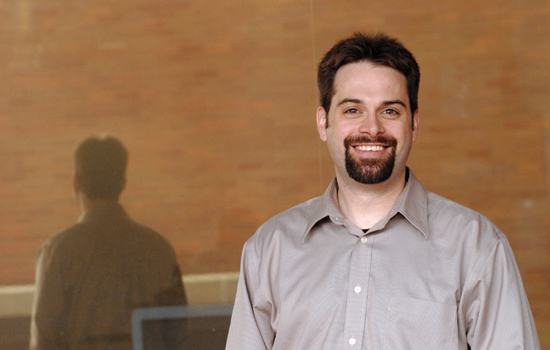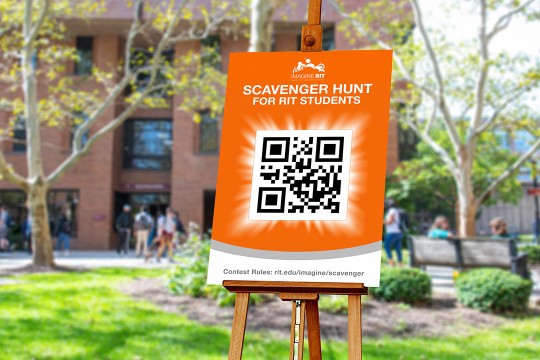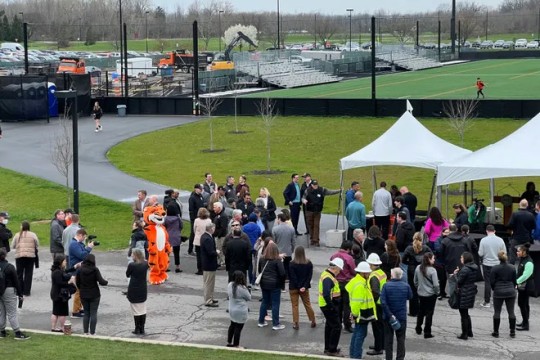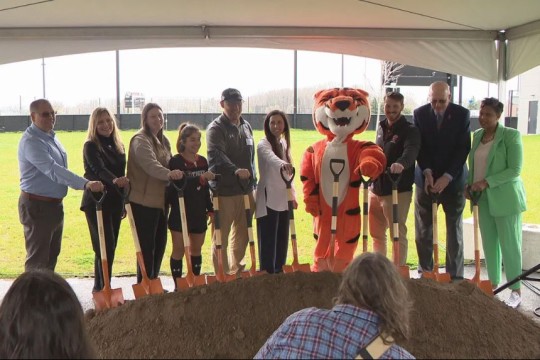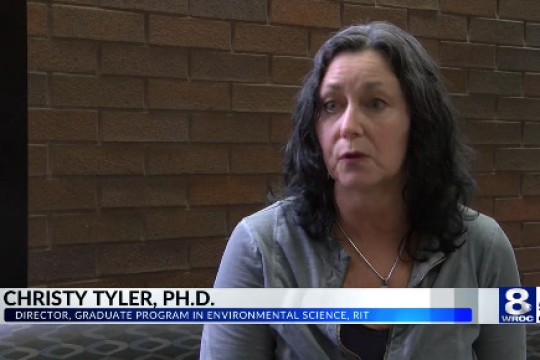Eric Nystrom: Understanding the past is key to this educator’s future
A. Sue Weisler
Assistant Professor Eric Nystrom
The public has a huge appetite for history, and consumes it widely outside academia—through popular books, museums, community projects, national parks, and even the History Channel. Collectively, this historical activity, created by and for a non-academic audience, is known as public history.
The study of public history is a major research and education focus of Eric Nystrom, assistant professor of history and the winner of the 2008-2009 Richard and Virginia Eisenhart Provost’s Award for Excellence in Teaching. This award provides recognition by peers and students to a faculty member with three years or less teaching experience who has made a difference in the climate of the college in such areas as model classroom teaching, campus leadership, pioneering teaching methodology, creative course development and/or instructional support.
Through his efforts Nystrom hopes to advance understanding of the public uses of history, while also helping to train our next generation of caretakers of that history.
“The way that history is presented has a lot to do with how we remember—or don’t—what happened,” notes Nystrom. “And in many cases, if that history was presented a certain way, it tended to reinforce the remembrance of that particular version of the story at the expense of others.”
“Understanding this process of selective remembering, as it works on a societal level, is very important to uncovering our true heritage,” he adds. “Heritage helps us understand who we are and how we got here. But it needs to be cared for, like any resource, so training and assisting those caretakers and their future colleagues is critical.”
While Nystrom has conducted numerous research projects of his own in this area he has also worked to promote student historical research by serving as a faculty advisor on a number of student projects and by developing the Student Conference on RIT History which was held during RIT’s 2009 Innovation and Creativity Festival.
The conference included presentations such as the development of the biomedical photography program, RIT’s efforts in energy conservation and sustainability in the 1970s, and a history of the early years of the hockey team. Students conducted extensive research using primary source materials, worked with the RIT archivist and had access to records housed at Wallace Library. Nystrom next hopes to create a book version of conference papers to be produced through Lulu.
“The conference allowed students to learn about historical methods and further develop their own research skills, while working on projects based on their own interests,” notes Nystrom. “The work will also enhance RIT’s effort to collect and catalogue information on the university’s development through the years. In other words, the students win because they have fun learning, and RIT wins because we enhance our understanding of the institution.”
Nystrom received his B.A. and M.A. degrees from the University of Nevada, Las Vegas and his Ph.D. from the Johns Hopkins University. In addition to his work in public history, Nystrom’s scholarship includes work on the history of technology, especially the development of American mining engineering in the late 19th and early 20th centuries.











